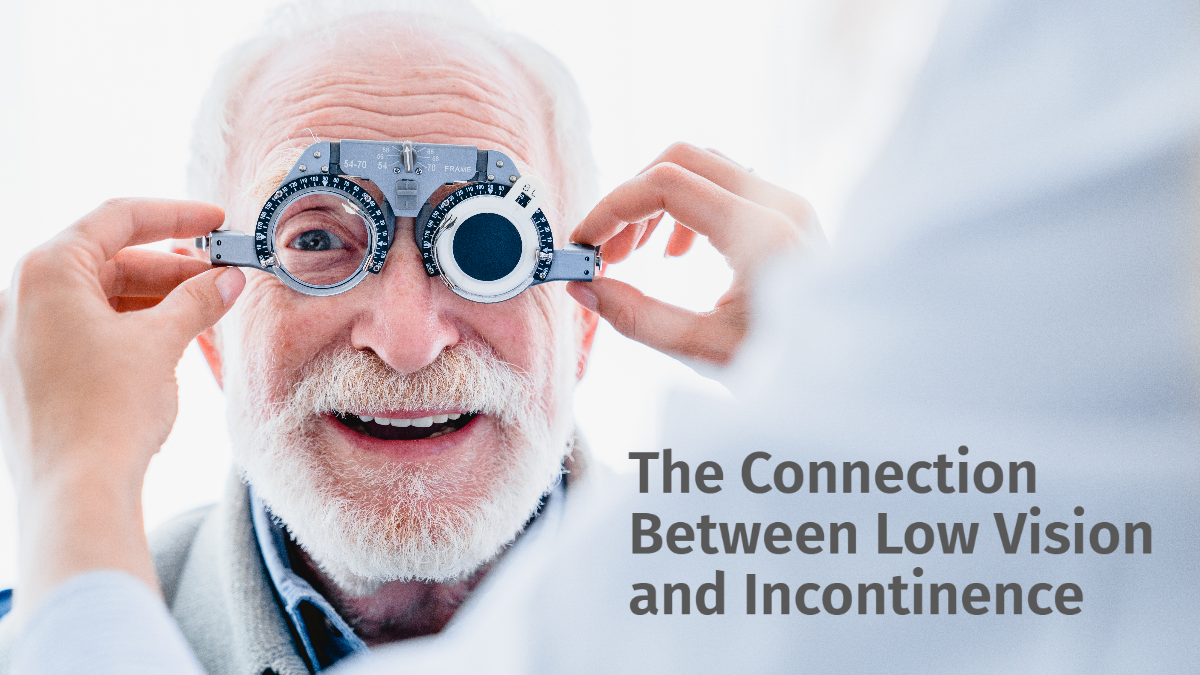The Connection Between Low Vision and Incontinence

Understanding the Impact on Older Adults
Low vision, a condition that affects many of us, can have a profound impact on various aspects of our daily lives. Today, we want to address a topic that may directly or indirectly relate to our experiences: the connection between low vision and incontinence. By exploring this relationship together, we aim to understand its impact and shed light on potential reasons behind it. Our goal is to empower you with knowledge and insights that can contribute to your overall well-being.
Impaired Vision and Spatial Awareness
As older adults with low vision, we may encounter challenges in perceiving our surroundings accurately. This difficulty in spatial awareness can make navigating our environment and finding restrooms more problematic. It’s important to recognize that these challenges can increase the risk of accidents and falls, potentially leading to episodes of urinary or fecal incontinence.
Medication Side Effects
Many of us rely on medications to manage our low vision or other health conditions. It’s crucial to be aware that certain medications prescribed for low vision or other ailments can have side effects that impact bladder or bowel control. Understanding the potential effects of our medications on urinary or fecal continence can help us better manage and address any related issues.
Cognitive Impacts and Functional Limitations
Older adults with low vision may also experience cognitive decline or impairments. These changes can affect our ability to process and respond to sensory information, including signals related to bladder or bowel control. Additionally, functional limitations result from low vision, such as limited mobility or difficulty performing work or everyday living tasks. Vision impairment or low vision can make it more challenging to access and use restroom facilities in a timely manner, further exacerbating incontinence issues.
Emotional and Psychological Factors
Living with low vision can be emotionally challenging, leading to feelings of frustration, anxiety, or a sense of diminished independence. It’s essential to acknowledge that these emotional and psychological factors can potentially impact bladder and bowel control. By managing stress and anxiety associated with low vision, we can reduce the muscle tension in the pelvic area and improve our urinary and fecal continence.
Understanding the connection between low vision and incontinence is crucial for our well-being. By recognizing the factors that contribute to this link, we can take proactive steps to address both issues. Let us strive to maintain our dignity, independence, and overall quality of life. Open communication, increased awareness, and ongoing research are key to exploring and addressing this important connection.
____________________________________________________________________________________________________
If you or a loved one is struggling with urinary incontinence, consider exploring the benefits of external male urinary catheters like Men’s Liberty™. Our easy-to-use external male urinary catheter is designed to give you back control and confidence. No more leaks or discomfort, just freedom to enjoy life without interruptions. Our secure and comfortable urine collection device lets you move freely and participate in all your favorite activities.
At Men’s Liberty™, we understand the importance of your comfort and privacy. Our product design keeps everything discreet, so you can feel confident and maintain your dignity. Our team of trained professionals is ready to answer any questions you may have. Don’t let urinary incontinence hold you back from enjoying life to the fullest. Try Men’s Liberty™ and experience the freedom and confidence you deserve call us today at 866-217-2301.

